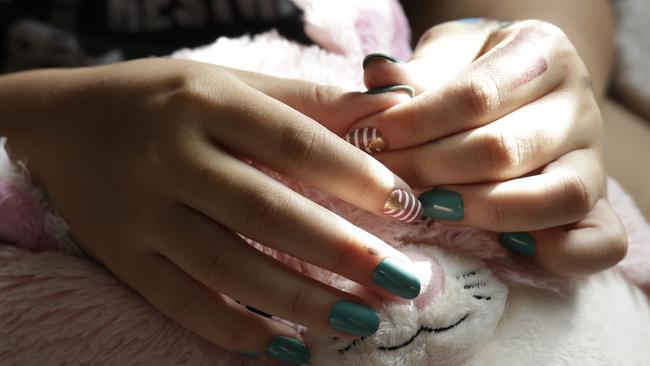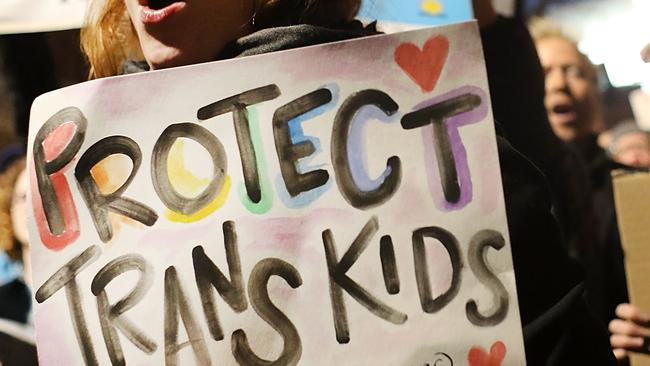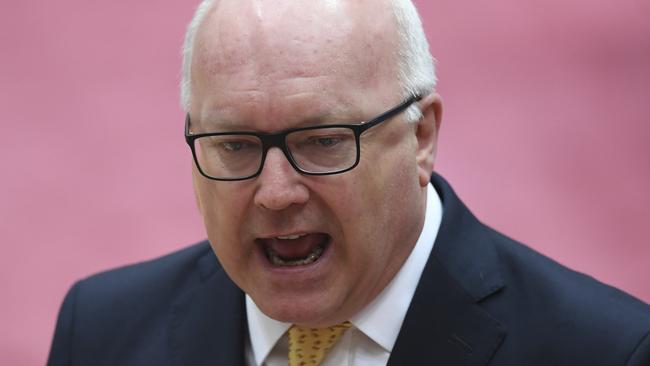Family Court ruling makes it easier for transgender teens to change sex
THE country’s top Family Court judges have made it easier and cheaper for transgender teens to change sex thanks to a landmark case brought by a Sydney dad on behalf of his son ‘Kelvin’.

NSW
Don't miss out on the headlines from NSW. Followed categories will be added to My News.
The country’s top Family Court judges have made it easier and cheaper for transgender teens to change sex.
A Sydney dad who brought the landmark case on behalf of his son, 17-year-old “Kelvin”, who was born female but has identified as a boy since the age of nine, has won the right for teenagers to make the decision without the oversight of the court.
It means that teenagers can start hormone treatment to change their sex with approval only from the medical profession and their parents.
“The distress caused by Gender Dysphoria can lead to anxiety, depression, self-harm and attempted suicide,” the court said in its judgment handed down today.

“The treatment can no longer be considered a medical procedure for which consent lies outside the bounds of parental authority and requires the imprimatur of the court.”
The judges had been told that the process of needing court approval to begin hormone treatment was so costly and lengthy that young people were suffering.
Of about 60 transgender applications made by children to the Family Court since 2004, none has been refused
The Family Court deemed the ruling so important that all five of its appeal judges sat on the case — the first time they had done so in 12 years.
Previously, transgender teens could begin only “puberty blocking treatment” without court approval after being diagnosed with Gender Dysphoria, a term the court said describes the distress experienced by a person due to incongruence between their gender identity and their sex assigned at birth.
That treatment is reversible, unlike the hormone drugs.
The judges found there were risks in not providing the stage two hormone drugs while acknowledging they can cause infertility but said men could have their sperm frozen encase that happens.
“Failure to provide gender affirming hormones results in the development of irreversible physical changes of one’s biological sex during puberty or the development of changes that lead to the need for otherwise avoidable surgical intervention such as chest reconstruction in transgender males or facial feminisation surgery in transgender females,” the court said.
“Stage 2 treatment for Gender Dysphoria may, but does not necessarily, cause long term infertility.

“For individuals who were assigned male at birth, oestrogen treatment may render the adolescent infertile over time. However, options are explored with the adolescent regarding their future ability to have biological children prior to the commencement of oestrogen use including preserving their fertility using sperm preservation procedures prior to the
commencement of oestrogen use.”
Kelvin changed schools to present as a male, used a chest-binder and in 2014 attended the Lesbian Gay Bisexual Transgender Intersex and Questioning “campout” on the Central Coast.
The court had already decided Kelvin was “competent” and fully understands what is involved in starting hormone treatment, as required under the previous law, but his father brought the appeal to ask the court to step out of the process altogether.
Among those supporting the change was federal Attorney-General George Brandis who supported the views of the ACT-based A Gender Agenda, representing “intersex, transgender and gender diverse people”, the Australian Human Rights Commission and Melbourne’s Royal Children’s Hospital, which deals with more gender dysphoria cases than any other hospital in the nation.
Only the NSW Department of Family and Community Services raised any opposition, saying the court should remain in an oversight role to make sure there was no “grave error” and the treatment was in the best interests of the child.
The five judges were Justice Stephen Thackray, Justice Steven Strickland, Justice Ann Ainslie-Wallace, Justice Judith Ryan and Justice Peter Murphy.
